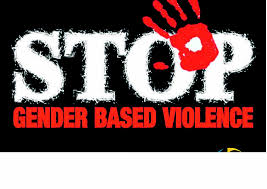
The 25th November of each year is the International Day for Elimination of Violence Against Women, until 10th December; the Human Rights Day, people and organizations globally mark 16 Days of Activism against Gender-Based Violence (GBV). The campaign highlights inequalities faced by women worldwide including female genital cutting (FGC).
According to a UN research more than a third of women worldwide have experienced physical or sexual violence in their lifetime, and it is without a doubt that women are more susceptible to GBV than men but we need to handle this problem from a general point of view.
Violence begins with conflict, emanating from a clash of interest, opinion, or even principles which then takes a toll and negatively impacts people’s health.
GBV on mental health
GBV victims experience negative repercussions, ranging from physical, economic, social and psychological effects. Violence resulting in physical injuries can be life-threatening, not forgetting that it also causes a devastating impact on the victims’ mental health.
While women are usually the immediate victims of gender violence, the consequences of gender violence extend beyond the victim to society as a whole thus threatening family structures. Gender-based violence has been linked to many serious health problems, both immediate and long-term, whether Direct or Indirect this includes; depression, anxiety, fear, post-traumatic stress disorder (PTSD), mistrust of others, inability to concentrate, loneliness, and victims experiencing suicidal ideation.
Psychological scars often impede the establishment of healthy and rewarding relationships and the victims of gender violence may vent their frustrations on their children and others, thereby transmitting and intensifying the negative experiences of those around them.
The solution
When we address GBV as a society, we always lean on the majority side which is the women, forgetting that there are male victims of GBV in our society today, who hide their suffering due to ridicule that has been put in place through our different social misconceptions.
We need to come up with a general understanding and solutions of curbing this vice for both genders because if we forget a violated boy child today he might grow up and do the same to others creating a loop that will be hard to control.
We need to provide GBV victims with a comprehensive and gender-sensitive mental health service that can allow them to take back control of their lives. This includes availing of mental health services for survivors of violence, and, where available, integrating it into the primary health care system.
The solution to GBV in most cases comes after the victim has been violated but we can also come up with strategies of avoiding the problem altogether, through developing policies and innovative strategies aimed at addressing the dual challenge of responding to GBV and the associated mental health consequences in a comprehensive and integrated manner.
At a population level, we need to focus on preventing GBV which may assist in averting the onset of a range of common mental disturbances.
Handling any vice in our society does not start at an organizational level, but individual, it is your duty and social responsibility to make sure that you avert from GBV and or assist the victims around you.
